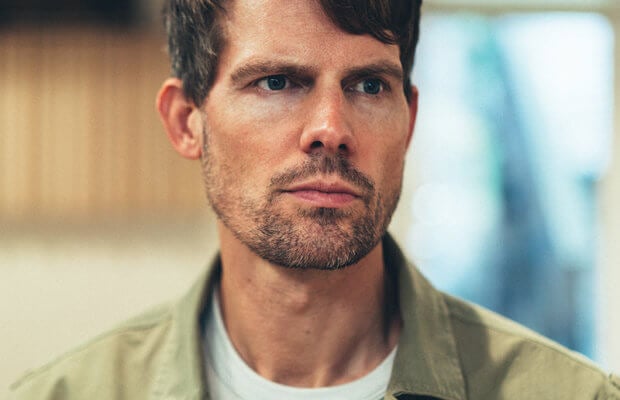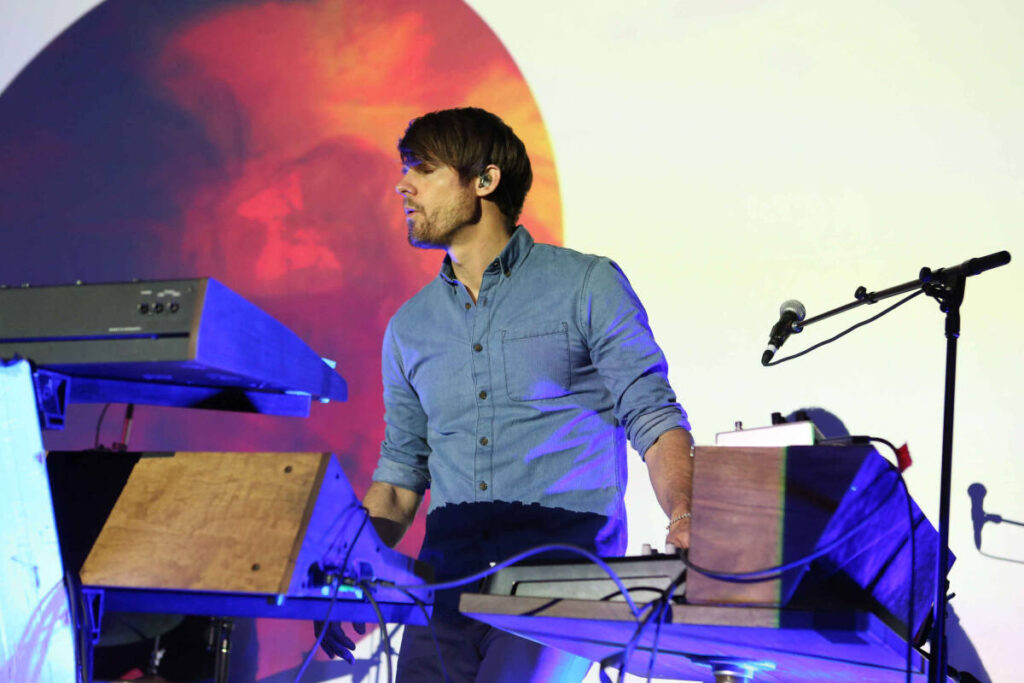Tycho es un músico electrónico conocido por su enfoque en la música ambiental y downtempo, que combina elementos electrónicos con guitarras y melodías envolventes. Su estilo distintivo y relajante lo ha convertido en una figura influyente en la escena de la música electrónica contemporánea.
Su música se caracteriza por su atmósfera relajante y sus paisajes sonoros envolventes. Sus canciones a menudo presentan ritmos suaves y sutiles, combinados con capas de sintetizadores y guitarras etéreas. Esta combinación crea una experiencia auditiva que es a la vez estimulante y relajante.
Después de cinco años de ausencia, Tycho sacó un nuevo single llamado “Time to Run” y tuvimos la oportunidad de hablar con él acerca del último lanzamiento y su recorrido por la música.
1. ¿When did you start making music?
Scott: It was pretty late in life, I think I was 20 or something like 1990 maybe 1999, I made CD’s and stuff for my friends and family but I put out my first release in 2002.

2. ¿What were your musical influences?
Scott: Starting out, I was really into German bass, like Roni Size, LTJ Bukem, and that whole full cycle crew and all that stuff but mostly logical progression was like why I started making music. But then, DJ Shadow came out during that time and I was really into that. But then I heard Boards of Canada a few years later after I started making music and that’s when I was really like “this is the kind of music I wanna make”, so that’s been my biggest influence since.

3. ¿How did you go from a solo project to a full band?
Scott: I’ve been doing the kind of bedroom producer thing for a long time and then I was really interested in guitars and rock music was kind the kind of genre that I listen to the most is like indie rock or something so, I’d always wanted to find a way to incorporate guitars into the music and I play guitars on the keyboard, like a sampled guitars and then I finally got a guitar and started messing around. Then I wrote “Daydream” and “Ascension”, like some of those earlier guitar songs and then it came time to go play them live and so I was like “oh yeah,
I could play the guitar in the studio and get by, but I couldn’t play it live” so I hooked up with Zach, the guitarist and bassist and then we started working together for shows and then we started actually recording and writing songs together. When we really started touring was like around 2010, 2011 after “Dive” came out and that’s when we met Rory.
And then, same thing. We played a lot of shows with Rory and then decided “okay, let’s try to record together in the studio”.

4. Your music generates a kind of inner peace and a serene escape for listeners seeking solace and introspection, ¿Is that a goal planned from its creation?
Scott: No, not at all. I think that’s just kind of what naturally comes out. I’m trying to speak to beauty, nature and things like these, overarching, calming subjects. So, I think that’s what I’m going for personally, just because it’s like a meditation for me, and to hear that other people find it calming and meditative is really meaningful.
5. It happens that some artists have favorite albums of their own creation. ¿Is that your case? Do you have a favorite record of yours?
Scott: That’s tough. I mean, there’s different things I like about all the records. I think “Dive” is obviously a special record for a lot of reasons, but I also have a hard time seeing that as an album, because It was so many years that I wrote that album, over five years or something, so It wasn’t like this really intense eight month process of “let’s sit down and write a record”. I think “Awake” was kind of pure in that respect where it was all written and recorded in a very short amount of time, so that feels to me more like an album. I guess that’s not a real answer
but I think it’s hard to say. I do appreciate “Dive” for what it is, It’s a special album.
6. Tell us a bit about your latest single: Time to run
I’ve been kind of taking a break for a while. Well, not a break but just messing around in the studio for the last five years. I haven’t had like a deadline or anything to put an album out and
I just kind of decided to take a break and spend some more time like I did with “Dive”. Really just trying new things, experimenting and trying to evolve and change. That’s kind of what came out of it, I was really inspired by funk style drumming and trying to find different rhythmic patterns and structures than before, and that kind of just opened up this different style of song. Zach Brown sent me the guitars, he made a riff in a demo and I was like “Oh, I was you working on this other song” and put them together, and they sounded really cool. We went from there.
7. We also see in your most recent video that you have a love for racing or sports. Did music replace this discipline?
It was right when I started music when I stopped running in college. I think for me, I didn’t really have an athlete, I drew a lot as a kid but for whatever reason I didn’t feel like that wasn’t something I was super obsessed with. I just did it as a habit almost, but running was racing and competitive running. I’ve been doing that since I was a really little kid, like 8 years old, so that was always kind of my thing or like how I identified, that was part of my identity to me. I was a runner and like that was the thing I did, so that was always really important to me, and that’s kind of like before I made music.
I just remember when I was running to kind of deal with the stress of it, pace myself and and calm my mind. I would play back loops in my head of music like these little snippets of a song or just drums, like just some sort of kind of meditative practice, just naturally.
That’s kind of just what I did as a kid cause I didn’t know any other way to cope with the stress and later I wondered if that had some connection with the fact that that’s how I ended up making music, is like looping these elements and kind of having these repeating patterns and stuff.
